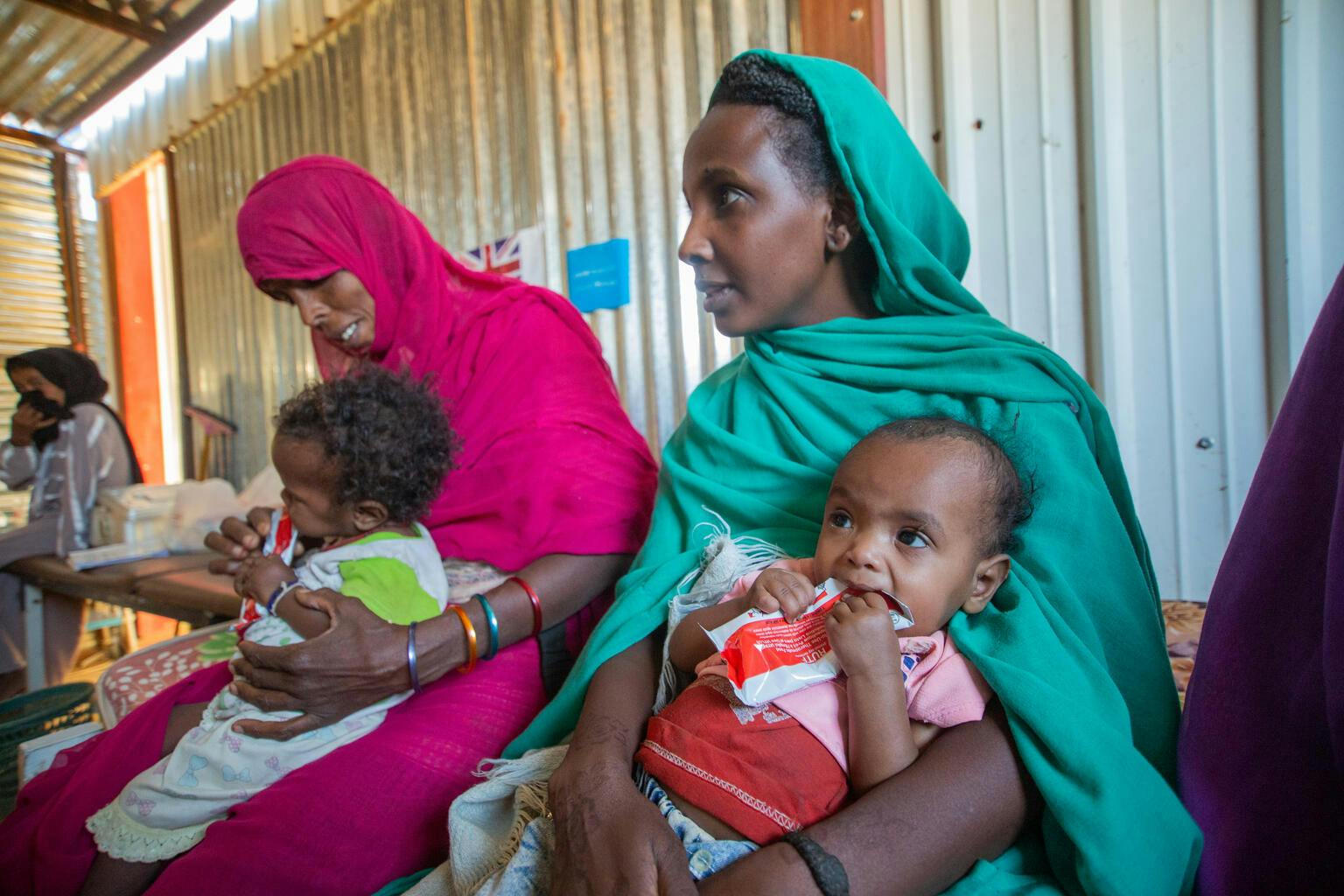
Children in Sudan at risk of famine
Home
Media Releases
Children in Sudan at risk of famine
9 March 2024
Statement by UNICEF Executive Director Catherine Russell on children in Sudan at risk of famine.
NEW YORK, 8 March 2024 – “The brutal war in Sudan is pushing the country toward famine and a catastrophic loss of life, especially among children. In what is now the world’s largest child displacement crisis, severe malnutrition among young children is intensifying beyond the worst projections, and there are outbreaks of cholera, measles and malaria.
“There is also evidence of spikes in malnutrition-related child deaths, particularly among displaced children. In January 2024, an assessment by Doctors Without Borders at Zamzam Camp, North Darfur, revealed malnutrition and mortality above emergency levels. Mass child nutrition screenings conducted by UNICEF and partners in February 2024 in Central Darfur and Gezira states reflect alarming levels of child wasting. And in February, the State Ministry of Health in West Darfur verified the deaths of 14 children due to malnutrition. They died in their homes.
“This is happening before the annual lean season which begins in the coming weeks – when the malnutrition situation will only worsen.
“In 2023, UNICEF saw record admissions of children seeking life-saving treatment for severe acute malnutrition (SAM) – the deadliest form of malnutrition – in the areas UNICEF and our partners could access. However, in places we are less able to access, just 37 per cent of the estimated 120,000 children suffering from SAM received the life-saving treatment they required – the vast majority of them before conflict broke out in April.
“This year, nearly three-quarters of the staggering 3.7 million children who need urgent nutrition support live in 135 localities that are classified as hard-to-reach. Over half of the children suffering from SAM are in Darfur, Khartoum and Kordofan, which include large areas where assistance must be delivered across conflict lines or borders.
“Communities are on the brink of famine because we are prevented from reaching many of the children, women and families in need. This is unacceptable. We must act now to massively scale up work to identify the children and women at risk, and provide them with life-saving feeding and care, including essential nutrition supplies, vaccines and safe water.
“To do this, we need parties to the conflict to enable rapid, sustained, and unimpeded humanitarian access – both across conflict lines within Sudan and across borders with Sudan’s neighboring countries. Chad has provided a crucial lifeline to communities in Darfur, and access through its border remains critical, along with access through South Sudan. We also need telecommunications networks to function properly in order to identify and refer children at risk, and for humanitarian partners to communicate urgent needs.
“From the international community, we need a massive mobilization of resources by the end of March so that humanitarian partners can get the supplies and capacity on the ground, in time, to limit the impending humanitarian catastrophe. UNICEF alone urgently requires US$ 240 million for its famine prevention response.
“Children cannot wait for the world to deliberate whether famine is underway in Sudan. They urgently need help right now.”
